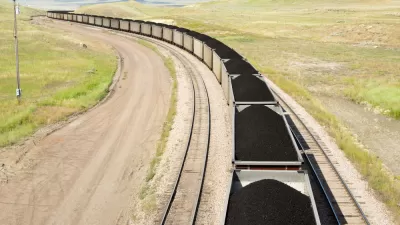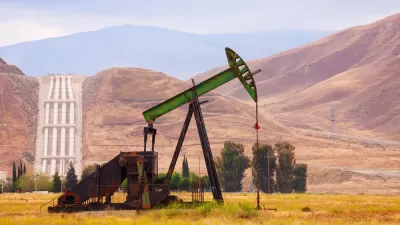The Port of Albany is thriving as a major hub for CBR shipments from the Bakken field in North Dakota and Saskatchewan province. But we learn there are limits to further growth after the city slapped a moratorium on expansion to oil sands from Canada
"Albany County Executive Daniel McCoy issued an executive order Wednesday (March 12), imposing a moratorium on the heating of crude oil and expansion of crude by rail transport operations at the Port of Albany on the Hudson River," writes Joanna M. Foster, a reporter for Climate Progress.
As we noted recently, "Albany gets 20 to 25 percent of the Bakken’s rail exports, according to various analyst estimates." In that March 4 post, we also indicated that "Global Partners, which pioneered the use of Albany as a crude-oil hub announced plans to ship crude extracted from the oil sands of Canada."
Now we know what happened to those plans. Foster writes, "Global recently applied to the New York Department of Environmental Conservation (DEC) and the Albany City Planning Board for more permits for further expansion and a special permit that would allow the company to start heating tar sands oil near the port. But all plans to expand will now be put on ice until a health impact study is completed."
What a turn around from 2012 when DEC gave Global "the green light to double its crude oil storage and loading capabilities at its Port of Albany terminal, where the company handles over one billion gallons of highly explosive Bakken crude oil from rail cars every year," writes Foster.
McCoy said that the heating and storage of crude oil at the port could create a “condition detrimental to the public health and safety of the residents of Albany County.” And he pledged that the moratorium will not be lifted until he’s confident that Albany County residents are safe.
“We applaud this decisive action by Albany County leaders, who recognize the threat to local residents posed by the unbridled expansion of crude oil activities at the Port of Albany,” said Earthjustice attorney Christopher Amato in a statement.
FULL STORY: Albany Places Moratorium On Crude Oil Port Expansion

Maui's Vacation Rental Debate Turns Ugly
Verbal attacks, misinformation campaigns and fistfights plague a high-stakes debate to convert thousands of vacation rentals into long-term housing.

Planetizen Federal Action Tracker
A weekly monitor of how Trump’s orders and actions are impacting planners and planning in America.

San Francisco Suspends Traffic Calming Amidst Record Deaths
Citing “a challenging fiscal landscape,” the city will cease the program on the heels of 42 traffic deaths, including 24 pedestrians.

Defunct Pittsburgh Power Plant to Become Residential Tower
A decommissioned steam heat plant will be redeveloped into almost 100 affordable housing units.

Trump Prompts Restructuring of Transportation Research Board in “Unprecedented Overreach”
The TRB has eliminated more than half of its committees including those focused on climate, equity, and cities.

Amtrak Rolls Out New Orleans to Alabama “Mardi Gras” Train
The new service will operate morning and evening departures between Mobile and New Orleans.
Urban Design for Planners 1: Software Tools
This six-course series explores essential urban design concepts using open source software and equips planners with the tools they need to participate fully in the urban design process.
Planning for Universal Design
Learn the tools for implementing Universal Design in planning regulations.
Heyer Gruel & Associates PA
JM Goldson LLC
Custer County Colorado
City of Camden Redevelopment Agency
City of Astoria
Transportation Research & Education Center (TREC) at Portland State University
Jefferson Parish Government
Camden Redevelopment Agency
City of Claremont




























